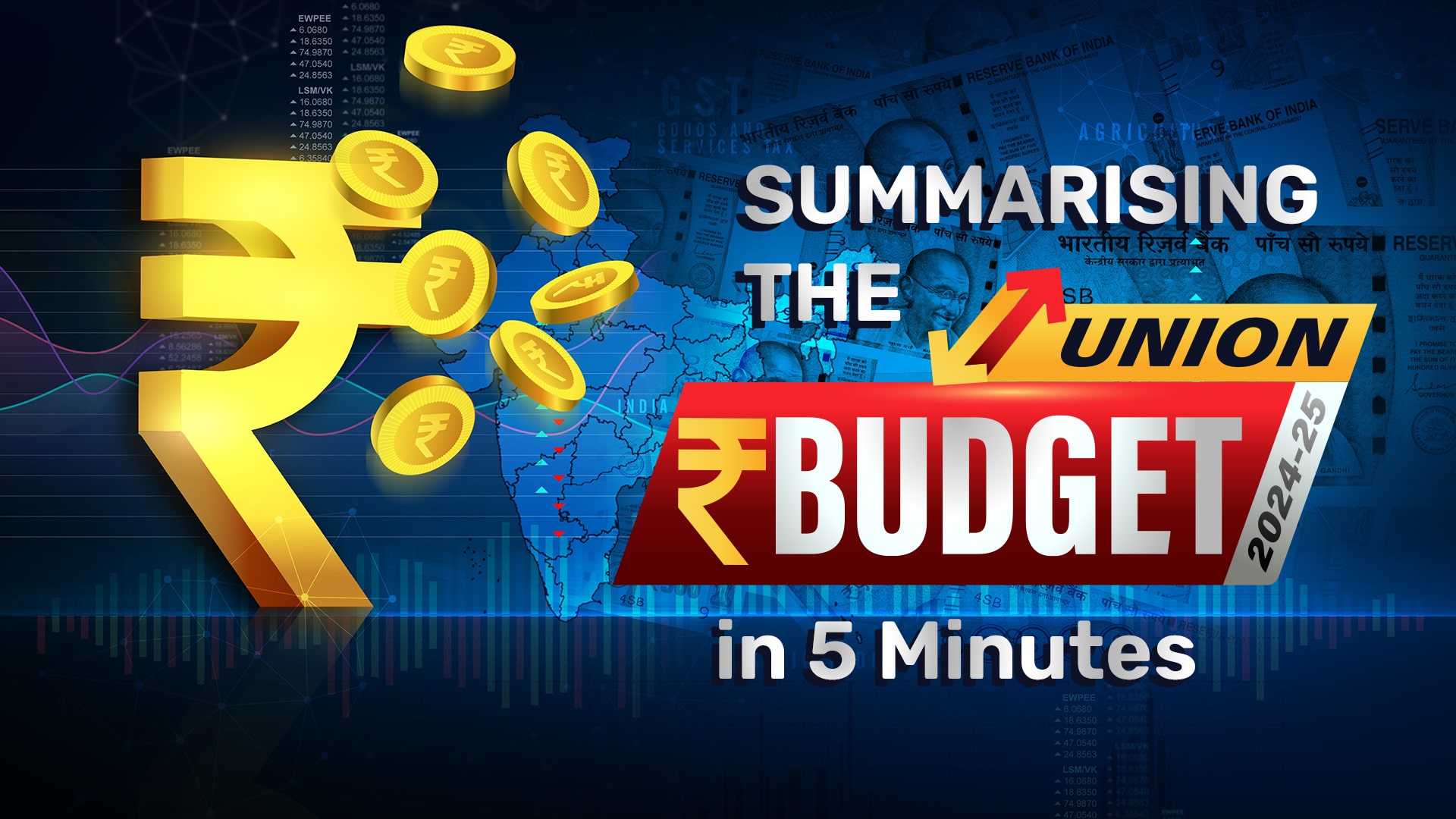Understanding the Union Budget 2024
Episodes

E01: Summarising the Union Budget 2024 in 5 Minutes
04 mins
Excited about the changes announced in the Union Budget 2024? Check out this video for a quick summary of the major points announced by the finance minister. First, we’ll talk about the 9 key focus areas under 'Viksit Bharat' announced in the budget. Next, you’ll understand the changes mentioned for the New Tax Regime. The standard deduction is proposed to increase to ₹75,000, and the tax slabs have been revised. We’ll see how income up to ₹3 Lakhs is tax-free, while income above ₹15 Lakhs attracts a 30% tax rate. You’ll also learn how pensioners might benefit from a family pension deduction increase from ₹15,000 to ₹25,000. The video further explores capital gains tax. Long-term capital gains are set at a 12.5% tax rate, with an exemption limit of ₹1.25 Lakhs per year. Next, the video will discuss revisions to customs duties and proposed TDS and TCS changes. The latter includes a reduced 0.1% TDS rate on e-commerce transactions. The budget also mentioned additional investments under PM Awas Yojana and PM Surya Ghar Muft Bijli Yojana. Finally, we’ll explore new schemes worth ₹2 Lakh Crores for youth employment and upskilling. Similarly, larger Mudra loans and enhanced support were announced for MSMEs.

E02: Decoding the Impact of the Union Budget for You
05 mins
The Union Budget introduced many changes for salaried individuals; but what does it all mean? Let’s break it down in this video with the example of Mohan, a salaried employee. First, we look at changes in Mohan’s tax liabilities on his annual income of ₹10 Lakhs. Under the revised new tax regime, his standard deduction increases to ₹75,000, lowering his taxable income to ₹9.25 Lakhs. But with his new applicable tax slab, Mohan will pay just ₹42,500, saving ₹10,000. Next, you’ll understand the tax changes for Mohan’s investments. If he buys shares worth ₹2 Lakhs and sells them for a 35% profit after 10 months, he will have to pay 20% short-term capital gains tax. We’ll also discuss how long-term capital gains tax of 12.5% applies to his shares if he holds them for 2 years. After that, the video explores Mohan’s property transactions. Suppose he sells a property for ₹70 Lakhs which he bought for ₹50 Lakhs in 2015. Previously, indexation adjusted its cost to ₹64.82 Lakhs, with a 20% LTGC tax. Now, though, the indexation benefit is removed, he’ll pay 12.5% tax. This is how the Union Budget’s tax reforms may impact you! For more details on the budget, stay tuned to Academy!

E03: Union Budget 2024 Employment Schemes and their Benefits
03 mins
₹2 Lakh Crores for employment, 4.1 crore jobs, and more! In this video, we’ll provide a quick breakdown of the three new employment-linked schemes for youth and employers introduced in the Union Budget 2024. First, we’ll discuss Scheme A, which focuses on first-time employees. If your monthly salary is below ₹1 Lakh, the government could pay 1 month’s salary (up to ₹15,000) in 3 instalments. This scheme is expected to benefit 2.1 crore individuals over 2 years. Next, you’ll learn about Scheme B, which incentivises manufacturing jobs. Companies hiring 50 new employees or increasing their workforce by 25% (EPFO-enrolled) can receive subsidies of 8–24% of salaries for new hires. The video will also explain how Scheme C supports employers. It could reimburse the EPFO contributions up to ₹3,000/month per employee earning under ₹1 Lakh. Additionally, we’ll go through a fourth scheme targeting internships in India’s top 500 companies. This aims to create 1 crore internships over 5 years. Interns will receive ₹5,000/month from the government, along with a one-time ₹6,000 assistance, while companies contribute ₹6,000/month. With these initiatives, the government plans to boost formal employment and upskill the workforce. These could address the gap where only 21% of India’s employed population holds salaried jobs.

E04: Union Budget 2024 What Start ups and MSMEs Need to Know
04 mins
The Union Budget 2024 brings promising opportunities for start-ups and MSME owners, paving the way for growth and innovation. In this video, we’ll explore the key announcements. We’ll begin with the abolition of angel tax on all asset classes that could ease fundraising for start-ups. We’ll talk about how a venture capital fund of Rs. 1,000 Crore for the space economy might offer space start-ups new opportunities. Furthermore, we’ll cover how MSMEs might benefit from upcoming e-commerce export hubs in public-private partnerships, enhancing global market reach. We’ll also discover how the credit guarantee scheme expansion might allow MSMEs to access term loans without collateral. We’ll look into the Mudra loan limit being doubled to Rs. 20 Lakhs. We’ll discuss how the TReDS platform expansion could help unlock working capital for MSMEs, while new SIDBI branches are set to support MSME clusters. We’ll explore the digital public infrastructure tools, developed by the private sector, and how they could streamline credit, e-commerce, and health services. Additionally, we’ll take a look at how reduced capital gains taxes and a lower TDS rate for e-commerce operators might improve cash flow. With a fiscal deficit at 4.9% of GDP and Rs. 11.11 Lakh Crore allocated for capital expenditure, this Budget might drive infrastructure growth and economic resilience.
What to Watch Next
All



























